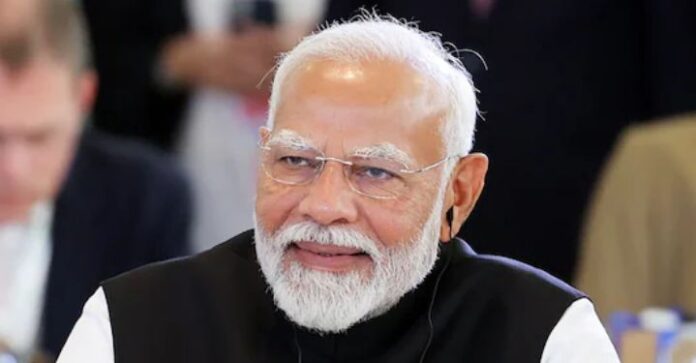In a move that highlights India’s growing clout in global diplomacy, Prime Minister Narendra Modi has officially accepted an invitation to attend the 2025 G7 Summit in Kananaskis, Alberta, Canada. The summit, scheduled to take place from June 15 to 17, will bring together the leaders of the world’s most advanced economies, with India’s participation underscoring its strategic importance on the global stage.
Canada, which is hosting the 51st edition of the G7 this year, extended the invitation to India as part of its effort to include key global voices in discussions that transcend traditional boundaries of membership. Canadian Prime Minister Mark Carney personally reached out to Modi, emphasizing India’s pivotal role in addressing global challenges such as climate change, trade security, and technological transformation.
India is not a permanent member of the G7, but its regular presence as a guest country at past summits reflects its emerging role as a major global influencer. Modi’s confirmation marks the continuation of India’s active engagement in multilateral platforms, especially at a time when geopolitical alignments are shifting rapidly and collaborative action is needed on a range of transnational issues.
“The Prime Minister looks forward to constructive dialogue with the leaders of the world’s most advanced economies,” a statement from India’s Ministry of External Affairs read. “India remains committed to fostering inclusive development, multilateral cooperation, and a sustainable global future.”
This year’s summit will feature leaders from the G7 countries—Canada, France, Germany, Italy, Japan, the United Kingdom, and the United States—along with representatives from the European Union. The G7 presidency rotates annually, and Canada has chosen the scenic region of Kananaskis as the venue, a location that last hosted the summit in 2002.
The selection of Kananaskis is symbolic—it represents not only Canada’s natural heritage but also its commitment to peaceful dialogue amid the world’s ongoing turbulence. Tight security measures and significant infrastructure preparations are underway to ensure the summit proceeds without disruption, as past G7 events have often drawn widespread protests and scrutiny.
Key topics on the summit’s agenda include sustainable economic recovery, supply chain resilience, artificial intelligence governance, climate change action, and global health system reform. India’s voice will be crucial, particularly on matters relating to the Global South, vaccine equity, and energy transition.
India’s participation comes at a time when its economy is projected to grow at one of the fastest rates globally. With its digital economy, youth demographics, and renewable energy initiatives, India offers a unique perspective on development challenges and opportunities that many G7 members are eager to explore.
Prime Minister Modi is expected to hold several bilateral meetings on the sidelines of the summit. Diplomatic sources suggest that talks with U.S. President Donald Trump, German Chancellor Friedrich Merz, and Japanese Prime Minister Shigeru Ishiba are on the cards. Issues of mutual concern such as defense cooperation, technology sharing, and regional stability in the Indo-Pacific will be high on the agenda.
This year also marks a significant moment for the G7 itself, with a number of newly elected leaders attending their first summit. The 2025 gathering will be the first for Carney, Starmer (UK), Merz, and Ishiba, while it marks Trump’s return after a hiatus. These changes introduce a fresh dynamic to the group’s discussions, making India’s presence all the more meaningful as a steady, familiar voice advocating for multilateralism.
Back home, Modi’s acceptance of the G7 invitation has been widely praised by Indian political analysts and foreign policy experts. “India’s consistent presence at these summits reflects our strategic shift toward global leadership rather than regional participation,” said Dr. Anjali Gupta, an international affairs expert based in New Delhi.
Indeed, India has, in recent years, hosted the G20 and joined key multilateral defense and technology initiatives, including the Quad and I2U2. Its contribution to global vaccine distribution through the COVAX initiative and its strong stance on net-zero carbon commitments have also enhanced its international image.
The 2025 G7 Summit will not only provide a platform for India to amplify these achievements but also allow it to engage with pressing future concerns. With technology, climate, and trade all at the center of G7 discussions, India is expected to advocate for a rules-based international order that accommodates both the aspirations of the Global South and the innovation priorities of advanced economies.
With just days to go before the summit, security preparations, diplomatic logistics, and media coverage are intensifying in Kananaskis. The world will be watching closely—not only to see what agreements are reached but also to assess how emerging powers like India are shaping the conversations and commitments of traditional Western blocs.
In this evolving geopolitical climate, the presence of Prime Minister Modi at the G7 is not merely ceremonial—it’s strategic. It underscores a moment where diplomacy must extend beyond old clubs and rigid alliances, embracing broader coalitions for global action.

